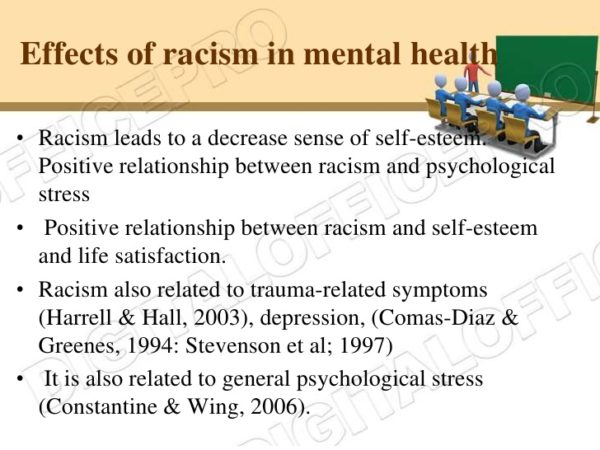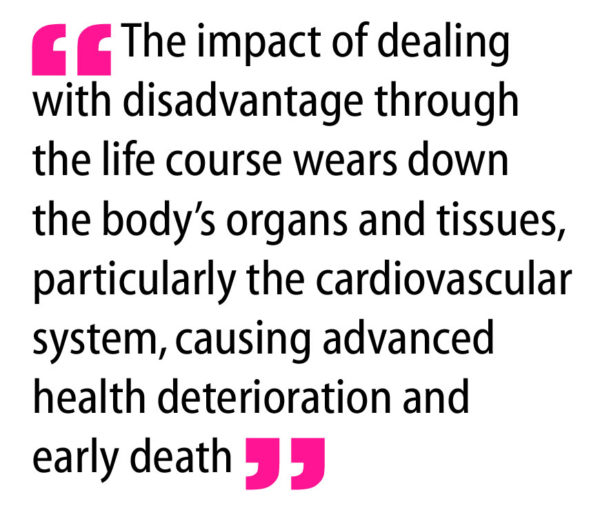
Today, we are looking at the effects of racism on the health of the sufferer. According to Merriam Webster, racism is the prejudice, discrimination, or antagonism directed against someone of a different race based on the belief that one’s own race is superior.
Especially in the United States, racism is a word some people would not want to hear. These people deny that racism exists. However, it now obvious that racism is not a perception in America, it is a reality. African-Americans and other minority groups in the country are constantly at the receiving end of racial bigotry.
But how does racism impact the health of the sufferer?
First, Sarah Zhang of the Wired News states that African-Americans face disproportionately high levels of diabetes, high blood pressure, and cardiovascular disease. She argues further that when it comes to mental health, studies show that reporting more incidents of racism is linked to more signs of depression and anxiety on the sufferer.
Also, it has been proven by researchers that racism causes stress. Doctors have also confirmed that stress can cause devastating effect on a person’s body and mind.
Currently, a growing body of research is linking people who have experienced racism to poorer health such as depression, low-birth weight and cardiovascular disease. Much of these studies come from the experience of African-Americans.
Researchers believe that even subtle racism can hurt. In a 2012 study, researchers compared the performance of students trying to solve a simple task after they had experienced subtle or blatant racism from the person at the desk next to them. The subtle stuff – having someone inch away while sitting next to the student – was a bigger drag on performance than the blatant bigotry. It was revealed that uncertainty about racism in a situation can sometimes make the situation worse.
Researchers also believe that people who have had shock from racism, suffer poor health. A preliminary study in 2010 catalogued the symptoms of posttraumatic stress disorder in students who not only experienced, but witnessed racist incidents. The more vicarious incidents they experienced, the more signs of trauma they had.
The Associate Professor of Human Ecology and Africana Studies at Rutgers, Naa Oyo Kwate confirms that studies are pointing to the fact that people who suffer racism are likely to have poor health.
“The literature is quite consistent. The more racism you experience, the worse your health experience in a number of domains,” Professor Naa says.
It is said experiencing racism, whether it is violence or insults, or more subtle snubbing, makes life more difficult. The stress becomes what is known as “allostatic load.” It disrupts the normal function of the body. Doctors say more stress means more cortisol in the body, and cortisol increases the risk of cardiovascular disease.
Professor Naa adds “You are continually having to respond to this kind of stress in the body and this kind of wear and tear.”
Commentators are beginning to believe that racism does not have to be as blatant and violent as the police killings of black men and women that dominate the headlines in the United States. Commentators are therefore encouraging all stakeholders in society to look at the problem from a holistic perspective, in order to get rid of it.
You want to support Anonymous Independent & Investigative News? Please, follow us on Twitter: Follow @AnonymousNewsHQ
This article (Studies are Revealing Racism Inflicts Damage on Brain and Body of the Victim) is a free and open source. You have permission to republish this article under a Creative Commons license with attribution to the author and AnonHQ.com.








Currently, a growing body of research is linking people who have experienced racism to poorer health such as depression, low-birth weight and cardiovascular disease.
Prenatal rascism…that’s a first lol. This is where you lost me.